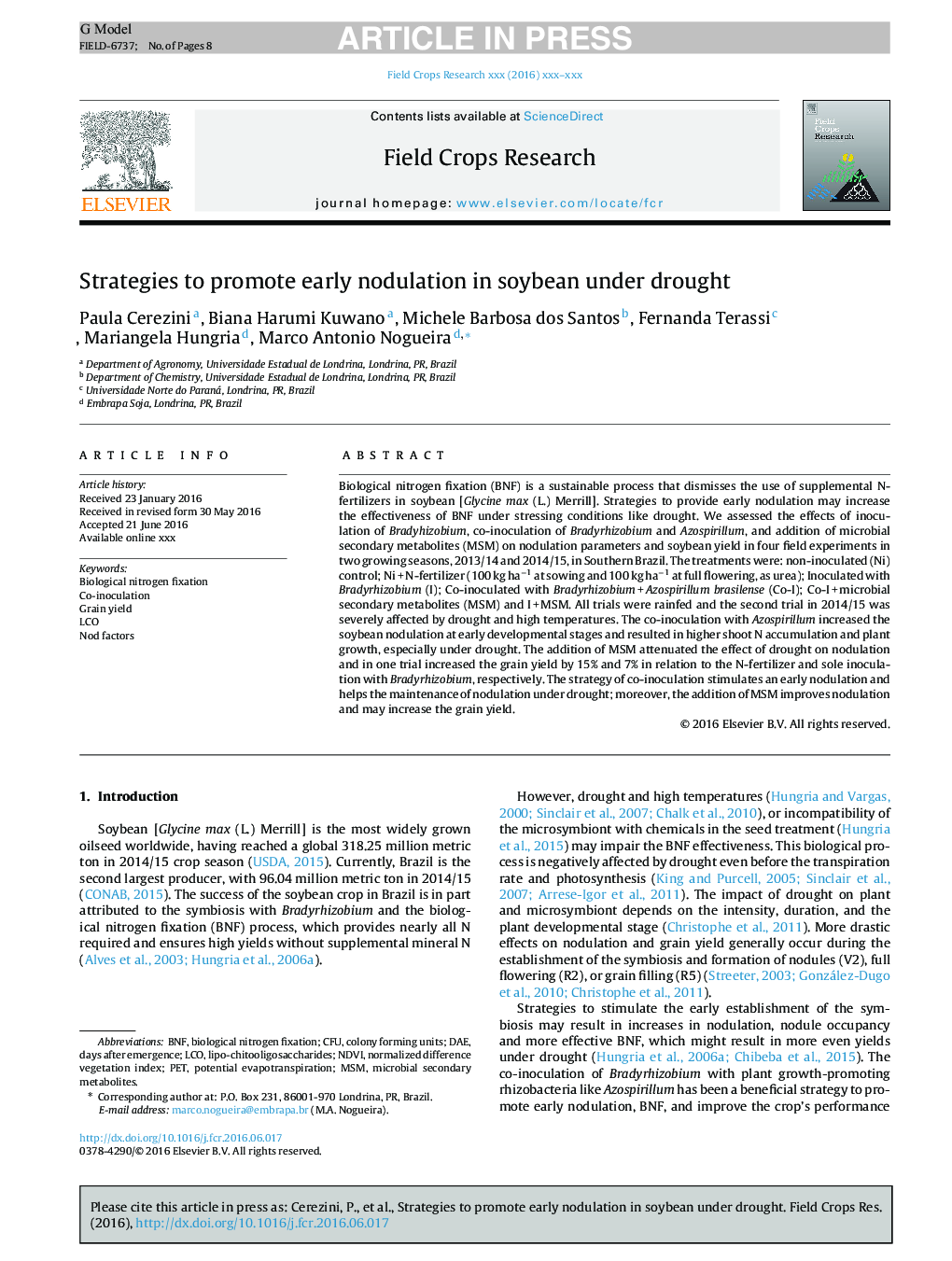| Article ID | Journal | Published Year | Pages | File Type |
|---|---|---|---|---|
| 6374522 | Field Crops Research | 2016 | 8 Pages |
Abstract
Biological nitrogen fixation (BNF) is a sustainable process that dismisses the use of supplemental N-fertilizers in soybean [Glycine max (L.) Merrill]. Strategies to provide early nodulation may increase the effectiveness of BNF under stressing conditions like drought. We assessed the effects of inoculation of Bradyhizobium, co-inoculation of Bradyrhizobium and Azospirillum, and addition of microbial secondary metabolites (MSM) on nodulation parameters and soybean yield in four field experiments in two growing seasons, 2013/14 and 2014/15, in Southern Brazil. The treatments were: non-inoculated (Ni) control; Ni + N-fertilizer (100 kg haâ1 at sowing and 100 kg haâ1 at full flowering, as urea); Inoculated with Bradyrhizobium (I); Co-inoculated with Bradyrhizobium + Azospirillum brasilense (Co-I); Co-I + microbial secondary metabolites (MSM) and I + MSM. All trials were rainfed and the second trial in 2014/15 was severely affected by drought and high temperatures. The co-inoculation with Azospirillum increased the soybean nodulation at early developmental stages and resulted in higher shoot N accumulation and plant growth, especially under drought. The addition of MSM attenuated the effect of drought on nodulation and in one trial increased the grain yield by 15% and 7% in relation to the N-fertilizer and sole inoculation with Bradyrhizobium, respectively. The strategy of co-inoculation stimulates an early nodulation and helps the maintenance of nodulation under drought; moreover, the addition of MSM improves nodulation and may increase the grain yield.
Keywords
Related Topics
Life Sciences
Agricultural and Biological Sciences
Agronomy and Crop Science
Authors
Paula Cerezini, Biana Harumi Kuwano, Michele Barbosa dos Santos, Fernanda Terassi, Mariangela Hungria, Marco Antonio Nogueira,
